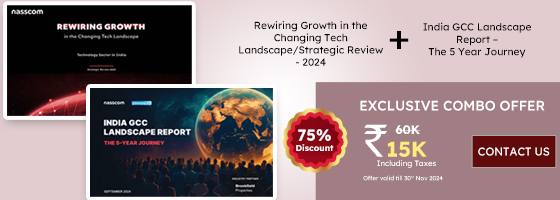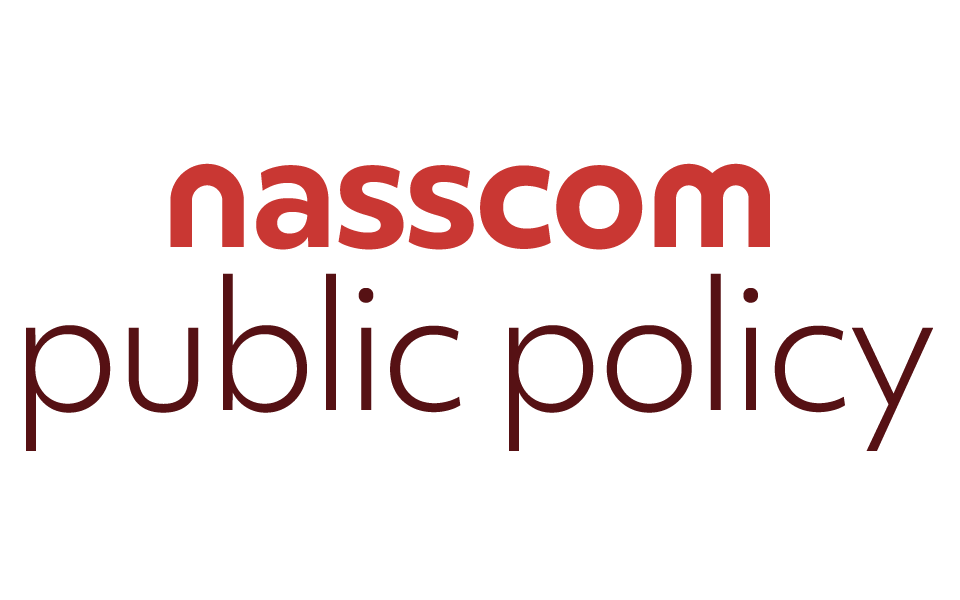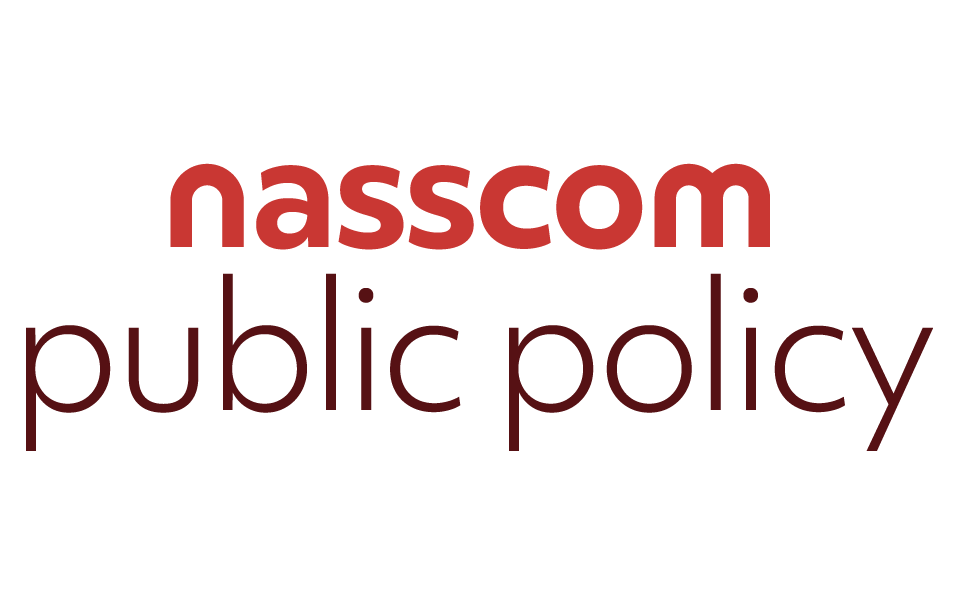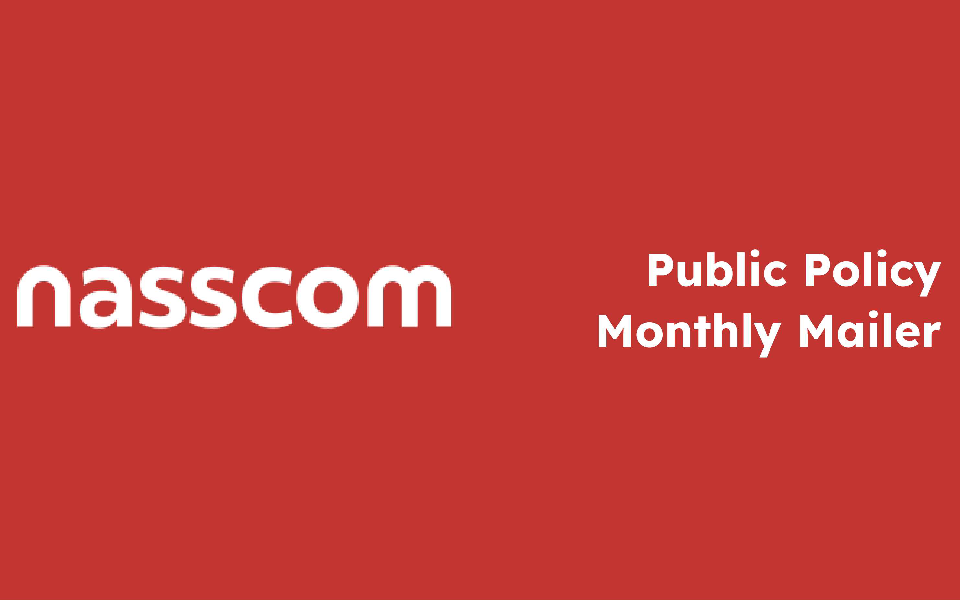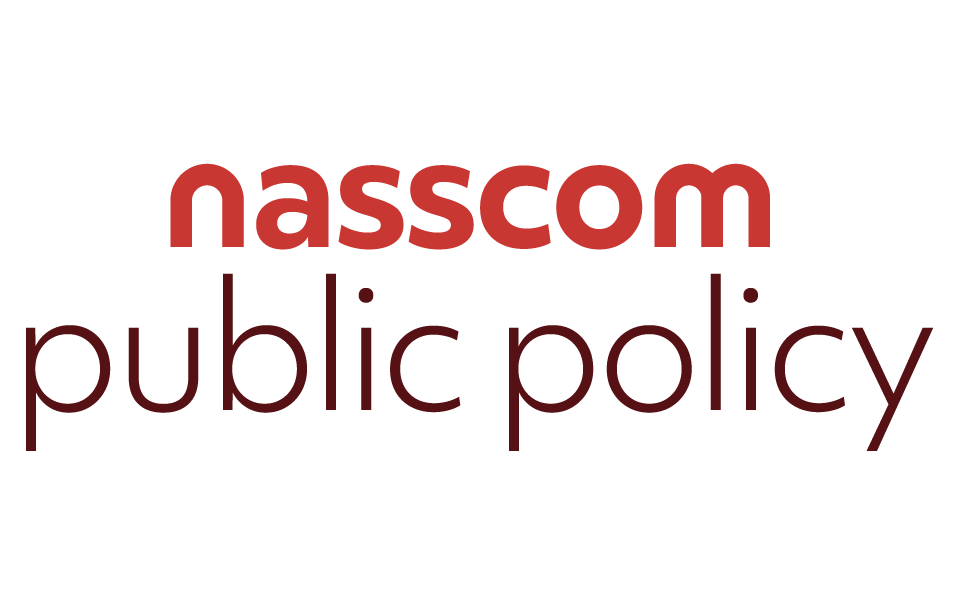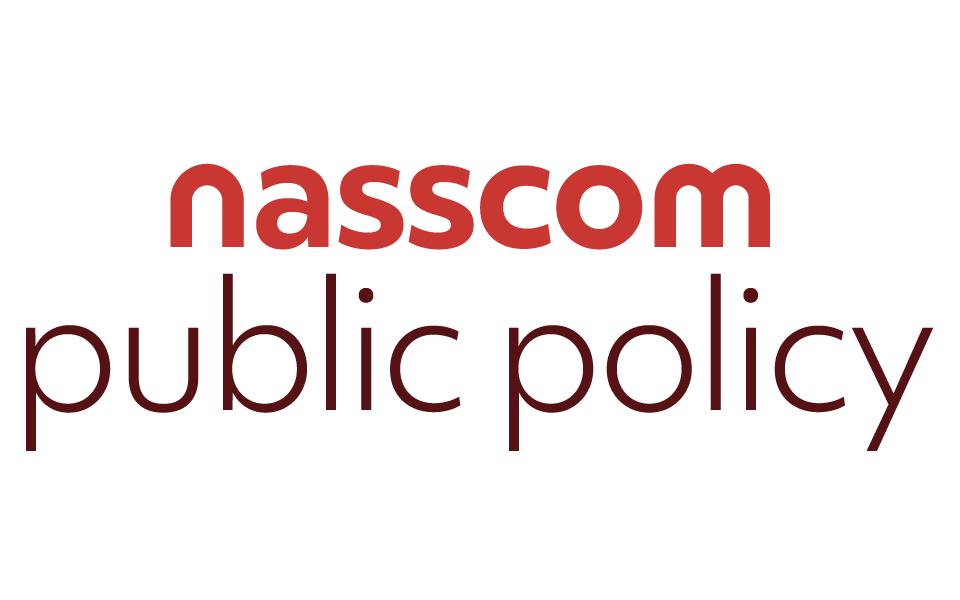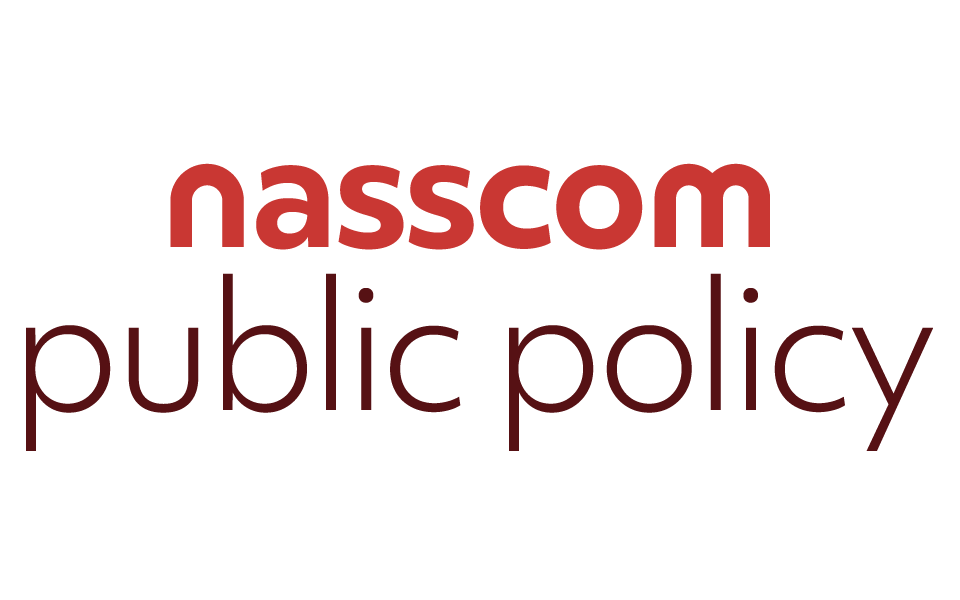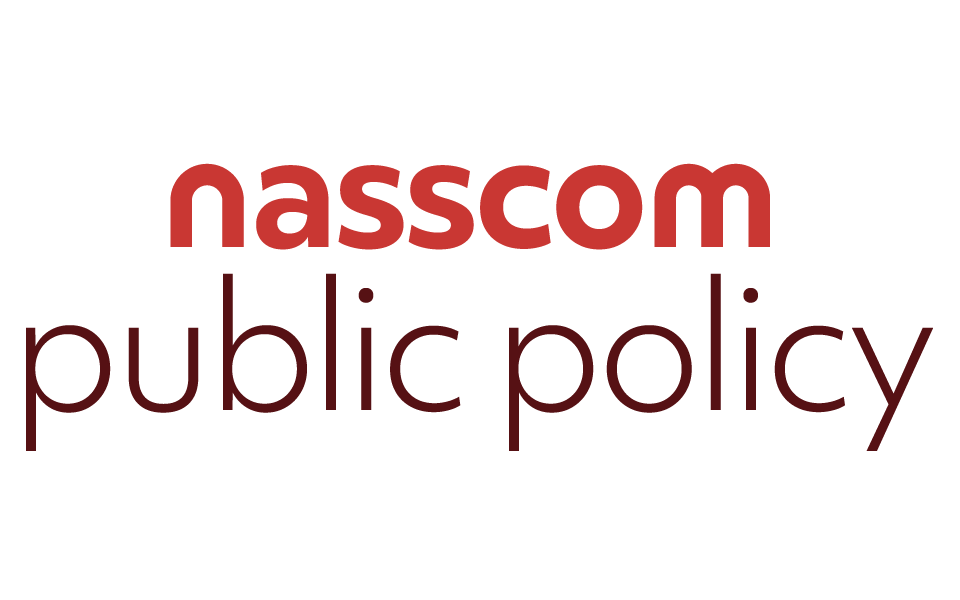On July 23, 2020, NASSCOM, in association with Deloitte India as knowledge partners, organised an interactive live Government – Industry interaction on completion of three years of GST with:
- D. P. Nagendra Kumar, Principal Chief Commissioner of Central Tax, Bangalore;
- Yogendra Garg, Principal Commissioner, GST Policy Wing; and
- Amitesh Bharat Singh, Additional Director General (Commissioner).
The session moderated by Ashish Aggarwal, Head – Public Policy, NASSCOM and Mahesh Jaising, Partner & National Indirect Tax Leader, Deloitte India, witnessed participation from around 100 participants.
Mr. Kumar acknowledged the role of the GST Council in smoothening the challenging task of implementing the GST Law. He highlighted that unified legislations and processes across the country at the state level and national level as a big achievement.
Summarised below are the takeaways:
A. Key issues under GST for IT-BPM sector
- Taxability of import of free of cost (FoC) services
- Several companies in the recent past have received inquiries, particularly from Directorate General of GST Intelligence (DGGI) seeking details of FoC import of software from overseas parent company/ affiliates. We highlighted that where there is no element of commercial exploitation of such software, there is effectively no underlying supply at all in order for Entry 3 of Schedule I to apply.
- To this, Mr. Garg emphasized on the importance of terms of the contract in order to arrive at a conclusion on whether there is in fact an underlying supply.
- We have submitted a detailed representation on this issue providing details of the cases along with terms of the contract. Specific cases where difficulties are being faced by companies could be brought to his attention for a resolution.
- Clarification in light of adverse interpretations of ITeS as ‘intermediary services’
- The officials were aware that Industry is waiting with bated breath for a resolution on this issue as adverse interpretations continue at the ground level including rejection of refunds, issuance of Show Cause Notices (SCNs), etc
- It was informed that the issue is under consideration and a clarification could be expected soon within a month. The aim is to provide clarity to categories of services provided by IT-BPM sector.
- Treatment of discount provided to dealers under post-sale schemes
- On this subject, Mr. Garg informed that they have received various representations.
- Industry faced several challenges after clarification provided in last circular, which was therefore withdrawn subsequently.
- It was informed that the government is considering to issue a clarification. However, the depth of issues to be covered in the clarification is still being debated.
- Easing the process of SEZ endorsement for refund claims
- Mr. Garg mentioned that for supply of goods, the Government is working with NSDL and ICEGATE to establish online connection for transactions from/to SEZ’s. The mechanism is under finalization stage and would help in eliminating physical endorsement requirement for goods.
- For services, NSDL has started online endorsement facility in October 2019. The coverage of assessee under such facility is only 60%. Single online platform is being considered after full coverage of assesses.
- He mentioned that the Department of Commerce would come out with a detailed SOP to be followed for endorsement of invoices within a fortnight.
- Mr. Singh highlighted the WhatsApp helpline facility provided in Bangalore Zone to resolve the issues faced by assesses.
- Refund of ITC on capital goods
- Mr. Garg mentioned that the proposal has not been considered by the Council in light of the current revenue figures and Government not achieving its target. He also provided insight on Government’s policy in the long run w.r.t. refund.
- The Government is planning to keep a single refund method (Refund of ITC) instead of current two methods (i.e. refund of payment made on zero rated supply and refund of unutilised ITC against zero rated supply).
- Refund of inverted duty structure on input services
- It was informed that government plans to eliminate inverted duty structure and refund thereon, since this discourages the investment and domestic industry.
- GST Rates would continue to be rationalized towards this end to ensure that no inverted duty structure remains. However, expanding the scope of inverted duty structure may not be possible considering Government’s initiative to encourage Atmanirbhar Bharat and Make in India.
- Treatment of re-submission of refund claim post rectification of deficiency as ‘fresh refund claim’
- Mr. Garg mentioned that refund is a time bound exercise where 2 years’ period is provided to claim the refund. The same applies to re-submission of refund claim post rectification of deficiency as ‘fresh refund claim’.
- There are large number of deficiency memo issued where fresh claims are pending. He underlined the fact that the Government needs certainty on its revenue for proper allocation. The refund applications cannot be kept in abeyance for longer period especially where the time limit is prescribed.
- We will highlight specific cases where difficulties are being faced by member companies due to the fact that deficiency memo are issued near the end of time limit.
- Non-functioning of GST Appellate Tribunal
- Considering the guidelines issued by High Court and Supreme Court, the Government is working to resolve this at the earliest possible.
- Amendment requiring payment of interest only on tax liability payable in cash not yet notified
- Finance Act, 2019, introduced proviso to Section 50(1) providing for payment of interest on late deposit of taxes, only
to the extent of amount payable in cash after set-off of liability from ITC. The above is yet to be notified due to pending amendments in SGST Acts of the states. - The Council has already recommended retrospective amendment for interest payment on net tax liability payable in cash. The same will be brought in the law at the earliest possible.
- COVID related health essentials – Credit eligibility
- Mr. Garg informed that the credit eligibility aspect is clear. There are certain items which are barred from credit availment under the provisions of GST Act. Relief sought on such activities need to be specifically communicated and could be considered with a valid proposal before the council.
B. Key issues under GST for E-commerce sector
- Mandatory registration with respect to goods suppliers resulting in small sellers moving away from online marketplace
- Mr. Garg recognized the merits of the issue and noted that at least local supplier within a state could be brought in the exemption.
- Alternate mechanism to make e-commerce operators liable to discharge tax on behalf of the supplier of goods to avoid unnecessary compliance burden for small scale supplier of goods is also under debate.
- The Government is open to discussion and undertake the possible solution.
- Requirement to carry physical invoices
- Government will consider this.
- Removing prohibition on availment of tax credits on construction of immovable property under Section 17(5) of the CGST Act
- Construction related credits would continue to remain blocked in the near future, given the fact that land/ immovable property continues to be outside the purview of GST.
- Extension of time limits for availment of input tax credits and issuance of credit notes for FY 19-20
- We will highlight specific cases where difficulties are being faced by member for consideration by the Council.
C. Considerations for easing of working capital
- Cross utilization of CGST credit between distinct persons
- Mr. Nagendra Kumar pointed out that erstwhile central excise rules had a provision to allow transfer of credit from one registration to another registration subject to issuance of invoice. However, GST is administered from state level having distinct person concept and differ from the erstwhile law.
- Although precedence is there from LTU perspective, the same was brought before the law committee in past and debated, but was not appreciated.
- Reverse charge liability to be discharged through credit
- Government is analyzing this proposal. Data from GSTIN is awaited. There may be some resistance by the Governments (Central & State), as this will result in no cash payment.
- Mr. Garg mentioned that this will be brought before the law committee for consideration.
- Cross utilisation of ITC within company or group entities
- Registrations across entities within the same state is an area that could be debated.
- Conversion of accumulated credit into tradable scrips
- This issue is not under consideration at present.
- We will highlight specific cases for consideration by the Council.
D. E-invoicing
- Mr. Garg informed that the government is working for rollout of E-invoicing from October 1, 2020 onwards.
- The threshold for E-invoicing for B2B transactions will be raised from INR 100 crores to INR 500 crores.
- For persons having turnover between INR 100 crores to INR 500 crores, the revised targeted date is 1 April 2020.
- Revised final schema along with FAQs, have been approved by GST law committee and will be released in a week, to accommodate the above mentioned changes and other issues in the past schema.
- A circular is being planned to be issued by GST Policy wing, in a week thereafter on open e-invoicing issues.
- The test environment for e-invoicing is expected to go live next week most likely.
- QR code for B2C transactions will be deferred and not applicable from 1st Oct 2020.
- New returns will be replaced with a modified return, with new return feature.
Overall, the basic aim of the government is to simplify the compliance requirements and bring down the cost of compliances.
We will be engaging with the GST Policy Wing on open issues with detailed suggestions and representations.
Attached is the slide deck that was presented during the session. The webinar recording is available at this link.
For feedback, write to us at policy@nasscom.in

